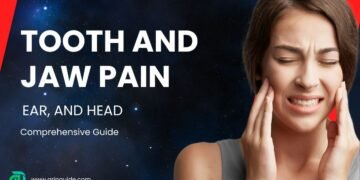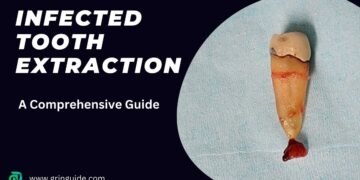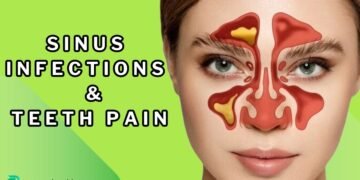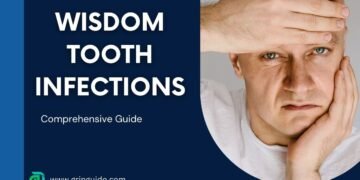Table of Contents
Introduction to Toothache Medicine
Toothache medicine plays a crucial role in alleviating the discomfort associated with tooth pain. Toothaches are a common ailment, often arising from issues such as cavities, gum disease, and tooth fractures. These conditions can cause significant pain, impacting daily activities and overall quality of life. Understanding the types of medicines available and their appropriate use is essential for effective pain management and maintaining oral health.
- Cavities, also known as dental caries, result from the demineralization of tooth enamel caused by bacterial acid production. When left untreated, cavities can penetrate deeper into the tooth, leading to severe pain and potential infection.
- Gum disease, another prevalent cause of toothache, involves the inflammation and infection of the tissues supporting the teeth. This condition can progress to periodontitis, where the gums and bone supporting the teeth are seriously damaged.
- Tooth fractures, whether caused by trauma or biting down on hard substances, can also lead to intense pain by exposing the sensitive inner layers of the tooth.
Best Medicine for Toothache
Various medications are available to alleviate toothache pain, ranging from over-the-counter options to prescription drugs. Non-prescription pain relievers, such as ibuprofen and acetaminophen, are commonly used to reduce inflammation and provide temporary relief. Topical anesthetics, containing ingredients like benzocaine, can numb the affected area and offer short-term pain relief. In cases where toothaches are due to bacterial infections, dentists may prescribe antibiotics to address the underlying cause and prevent further complications.
While toothache medicine is effective in managing symptoms, it is important to address the root cause of the pain. Regular dental check-ups, proper oral hygiene, and timely treatment of dental issues are essential in preventing toothaches and ensuring long-term oral health. By combining symptom management with appropriate dental care, individuals can effectively alleviate pain and maintain a healthy smile.
When it comes to managing toothache, over-the-counter (OTC) pain relievers can provide significant relief. Among the most commonly used OTC options are acetaminophen, ibuprofen, and aspirin. Each of these medications works differently to alleviate pain and reduce inflammation, making them suitable for various types of toothache relief.
Acetaminophen
Acetaminophen, often known by the brand name Tylenol, is widely used to relieve mild to moderate pain. It works by blocking pain signals in the brain, which can help to ease the discomfort associated with a toothache. The recommended dosage for adults is typically 500 to 1000 milligrams every four to six hours, not exceeding 4000 milligrams in a 24-hour period. While acetaminophen is generally considered safe, it is crucial to adhere to the recommended dosage to avoid liver damage, particularly for those with pre-existing liver conditions or those who consume alcohol regularly.
Ibuprofen
Ibuprofen, found in brands like Advil and Motrin, is another popular choice for toothache relief. As a nonsteroidal anti-inflammatory drug (NSAID), ibuprofen not only alleviates pain but also reduces inflammation, which can be particularly beneficial if the toothache is due to an inflammatory condition like an abscess or gum disease. The typical dosage for adults is 200 to 400 milligrams every four to six hours, with a maximum of 1200 milligrams per day for OTC use. Potential side effects include stomach irritation and increased risk of bleeding, so it is advisable to take it with food and avoid use if you have gastrointestinal issues or are taking blood thinners.
Aspirin
Aspirin, another NSAID, is known for its pain-relieving and anti-inflammatory properties. It can be effective for toothache relief, particularly when inflammation is a contributing factor. The standard dosage for adults is 325 to 650 milligrams every four to six hours, not exceeding 4000 milligrams in a day. However, aspirin can cause gastrointestinal side effects and should be avoided by individuals with certain health conditions, such as peptic ulcers or bleeding disorders. Additionally, it is not recommended for children or teenagers with viral infections due to the risk of Reye’s syndrome.
While OTC pain relievers can be effective in managing toothache symptoms temporarily, they do not address the underlying cause. Therefore, it is important to consult a dentist for a thorough evaluation and appropriate treatment. Remember to follow the recommended dosages and consider any potential side effects or precautions associated with each medication to ensure safe and effective use.
Topical Analgesics
Topical analgesics are a common choice for managing toothache pain due to their ease of application and quick relief. These products come in various forms, including gels, creams, and ointments, and often contain active ingredients like benzocaine or clove oil. Benzocaine is a local anesthetic that works by blocking nerve signals in your body, effectively numbing the affected area and providing temporary relief from pain. Clove oil, on the other hand, contains eugenol, a natural compound known for its analgesic and anti-inflammatory properties.
When using topical analgesics for toothache relief, it is important to follow the instructions provided by the manufacturer. Typically, a small amount of the gel, cream, or ointment should be applied directly to the affected area using a cotton swab or a clean fingertip. Ensure that the application is precise to avoid numbing unintended areas of the mouth.
The duration of relief provided by topical analgesics can vary. Benzocaine-based products generally offer relief for 20 to 30 minutes, while clove oil may provide comfort for a slightly longer period. However, these topical treatments are meant for short-term relief and should not be relied upon as a long-term solution for toothache. If the pain persists, it is advisable to consult a dentist for proper diagnosis and treatment.
While using topical analgesics, it is crucial to be aware of potential side effects. Benzocaine can sometimes cause allergic reactions, including rash, itching, or swelling, and in rare cases, it can lead to a condition called methemoglobinemia, which reduces the amount of oxygen carried in the blood. Clove oil, though generally safe, can cause irritation or a burning sensation if applied in excessive amounts. Therefore, it is essential to use these products sparingly and as directed.
Overall, topical analgesics can be an effective way to manage toothache pain temporarily. By understanding how these products work and using them correctly, individuals can achieve short-term relief while seeking professional dental care for a more permanent solution.
Prescription Medications
When dealing with severe toothache pain, over-the-counter options may not always suffice. In such cases, a dentist may recommend prescription medications to effectively manage the discomfort. These medications are specifically formulated to address more intense pain and are usually prescribed based on the underlying cause of the toothache. Understanding the different types of prescription toothache medicines and their appropriate use is essential for effective pain management and overall dental health.
Stronger pain relievers, such as Opioids or higher-dose NSAIDs, are commonly prescribed for acute toothache pain that has not responded to over-the-counter treatments. These medications are effective in providing significant relief but should be used with caution due to their potential for side effects and dependency. It is crucial to follow the dentist’s instructions strictly and use these medications only as directed.
In situations where a toothache is caused by an infection, Antibiotics may be necessary. Common antibiotics prescribed for dental infections include penicillin, amoxicillin, and clindamycin. These medications work by eliminating bacterial infection, thereby reducing pain and preventing the spread of infection. It is important to complete the entire course of antibiotics even if symptoms improve, to ensure the infection is fully eradicated.
Other specialized treatments may be recommended depending on the specific diagnosis. For instance, corticosteroids might be prescribed for inflammatory conditions affecting the oral cavity. Antiseptic mouth rinses can also be part of the treatment plan to maintain oral hygiene and reduce bacterial load. Each of these treatments serves a specific purpose, addressing the root cause of the toothache rather than merely masking the symptoms.
It is essential to seek a prescription for toothache medicine only after a thorough evaluation by a dentist. Self-medicating with prescription drugs can lead to unintended consequences and may complicate the condition. Always discuss potential side effects with your healthcare provider and monitor your response to the medication. Adhering to the prescribed dosage and duration ensures the effectiveness of the treatment and supports optimal oral health.
Natural and Home Remedies
When faced with a toothache, many individuals turn to natural and home remedies for relief. These methods can often provide temporary alleviation from pain and discomfort, while offering a more accessible alternative to over-the-counter or prescription toothache medicine. Among the most commonly recommended remedies are saltwater rinses, cold compresses, and various herbal treatments such as clove oil and garlic.
Saltwater rinses are a simple yet effective method for reducing inflammation and cleansing the affected area. By dissolving a teaspoon of salt in a glass of warm water and rinsing the mouth thoroughly, individuals can help reduce bacteria and promote healing. However, while this method is beneficial for minor irritations, it may not address the root cause of severe toothaches.
Applying a cold compress to the affected area can help numb the pain and reduce swelling. This involves placing an ice pack or a cold, damp cloth on the outside of the cheek for 15-20 minutes at a time. Cold therapy is especially useful for pain resulting from trauma or swelling, but it is important to avoid applying ice directly to the skin to prevent frostbite.
Herbal treatments, such as clove oil and garlic, have long been used for their medicinal properties. Clove oil contains eugenol, a natural anesthetic and antibacterial agent, which can be applied directly to the sore area using a cotton ball. Similarly, crushed garlic has antimicrobial properties that can help reduce toothache pain. While these treatments can offer temporary relief, their effectiveness may vary, and they are not substitutes for professional dental care.

While natural and home remedies can provide some relief from toothache pain, it is crucial to consult with a healthcare professional before relying solely on these treatments. Persistent or severe toothaches may indicate underlying issues that require professional intervention. Therefore, while these remedies can be part of a comprehensive approach to managing toothache, they should not replace proper dental treatment and advice.
Toothaches can range from mild discomfort to severe, debilitating pain. While over-the-counter toothache medicine can provide temporary relief, certain signs and symptoms necessitate a visit to the dentist. Persistent pain that lasts more than a couple of days, swelling in the gums or face, fever, or difficulty swallowing are clear indicators that professional dental care is required. These symptoms could signify underlying issues such as infection, abscess, or advanced dental decay, which cannot be effectively addressed with home remedies alone.
Delaying a visit to the dentist when experiencing severe toothache can lead to complications. For instance, an untreated infection can spread to other parts of the body, potentially causing serious health issues. Additionally, the longer dental problems are left unattended, the more complex and costly the treatment may become. Therefore, addressing the root cause of the toothache promptly is crucial for overall oral health and general well-being.
Preparing for a dental visit involves gathering relevant information about your symptoms and any toothache medicine you have been using. Make a note of when the pain started, its intensity, and any other associated symptoms, such as swelling or fever. This information will help your dentist diagnose the problem more accurately. It is also beneficial to bring a list of any medications you are currently taking, as this can influence treatment options.
During the appointment, expect a thorough examination of your mouth, teeth, and gums. The dentist may take X-rays to identify any underlying issues that are not visible during the initial examination. Depending on the diagnosis, the dentist will discuss the appropriate treatment plan, which may include prescriptions for stronger toothache medicine, antibiotics, or recommendations for procedures such as fillings, root canals, or extractions.
In summary, recognizing when to seek professional dental care and preparing appropriately for your visit can significantly impact the outcome of your treatment. Timely intervention not only alleviates pain but also prevents further complications, ensuring a healthier smile and overall health.
Preventing Toothaches
Preventing toothaches is an essential aspect of maintaining overall oral health. A proactive approach can significantly reduce the likelihood of experiencing dental pain and the subsequent need for toothache medicine. One of the most effective methods to prevent toothaches is adhering to a robust oral hygiene routine. This includes brushing teeth at least twice daily with fluoride toothpaste to remove plaque and food particles. Additionally, daily flossing is crucial for cleaning the spaces between teeth where a toothbrush cannot reach, thereby preventing plaque buildup and gum disease.
Regular dental check-ups play a pivotal role in early detection and prevention of dental issues. Scheduling visits to the dentist every six months allows for professional cleanings and identification of any potential problems before they escalate into painful conditions. Dental professionals can provide personalized advice and preventive treatments, such as sealants or fluoride applications, that can fortify teeth against decay.
Diet also significantly impacts dental health. Consuming a balanced diet rich in vitamins and minerals supports the strength and health of teeth and gums. Foods high in calcium, such as dairy products, leafy greens, and almonds, are particularly beneficial. Conversely, it is advisable to limit intake of sugary and acidic foods and beverages, as they can erode enamel and promote cavities. Drinking plenty of water, especially fluoridated water, can help wash away food particles and bacteria, further protecting teeth from decay.
Protective measures are equally important in preventing toothaches. Using a mouthguard during sports activities can safeguard against dental injuries. For individuals who grind their teeth, often unknowingly during sleep, a dentist-recommended night guard can prevent tooth wear and pain. Avoiding habits such as using teeth as tools to open packages or biting nails can also mitigate the risk of dental damage.
By implementing these strategies, individuals can significantly reduce the need for toothache medicine and maintain a healthy, pain-free smile. Prioritizing oral hygiene, a balanced diet, and protective practices is key to preventing toothaches and ensuring long-term dental health.
Conclusion and Final Tips
Throughout this blog post, we have delved into the various types of toothache medicine available and the importance of selecting the appropriate one based on the severity and underlying cause of the pain. Understanding the nature of your toothache is crucial, whether it stems from dental cavities, gum disease, or other dental issues, as this will guide you in choosing the most effective remedy.
Over-the-counter pain relievers, such as ibuprofen and acetaminophen, can provide temporary relief for mild to moderate toothaches, while topical anesthetics like benzocaine can numb the affected area. For more severe pain, prescription medications may be necessary, and consulting a dental professional becomes imperative. Moreover, home remedies, such as saltwater rinses and cold compresses, can complement medical treatments and offer additional relief.
Final tips for managing toothache pain include maintaining impeccable oral hygiene—brushing twice daily, flossing regularly, and using mouthwash to reduce bacteria. Avoiding hard, sugary, and sticky foods can prevent aggravating the pain. Additionally, regular dental check-ups are essential in identifying and addressing potential dental issues before they escalate into painful problems.
It is vital to remember that while toothache medicine can alleviate discomfort, it is not a substitute for professional dental care. Persistent or severe toothaches often indicate underlying conditions that require a dentist’s intervention. Therefore, seeking timely and appropriate dental advice is paramount to ensuring long-term oral health.
Preventive care remains the cornerstone of avoiding future dental issues. By prioritizing a healthy diet, avoiding tobacco products, and practicing good oral hygiene, you can significantly reduce the risk of toothaches and other dental problems. Remember, a proactive approach to oral health is the most effective strategy for maintaining a pain-free and healthy smile.
FAQs
-
What is the best medicine for tooth pain?
When it comes to addressing toothache, over-the-counter pain relievers like ibuprofen and acetaminophen are commonly recommended. These medications help reduce inflammation and alleviate pain. For more severe pain, a dentist may prescribe stronger painkillers or antibiotics if an infection is present.
-
What is the fastest relief for toothache?
If you are seeking immediate relief from a toothache, applying a cold compress to the affected area can help numb the pain. Additionally, over-the-counter numbing gels containing benzocaine can provide temporary relief. Clove oil, a natural remedy, is also known for its analgesic properties and can be applied directly to the painful tooth.
-
How to stop toothache?
Nerve pain in a tooth can be particularly excruciating. Desensitizing toothpaste containing potassium nitrate can help reduce sensitivity over time. For persistent nerve pain, a dentist might recommend a root canal procedure to remove the affected nerve tissue and alleviate the pain permanently.











